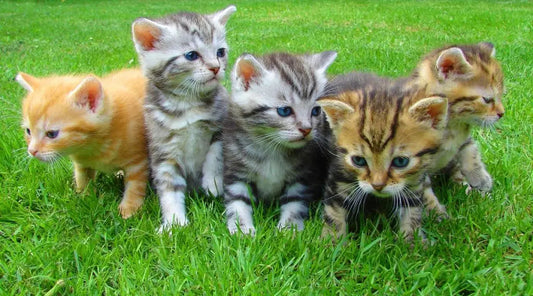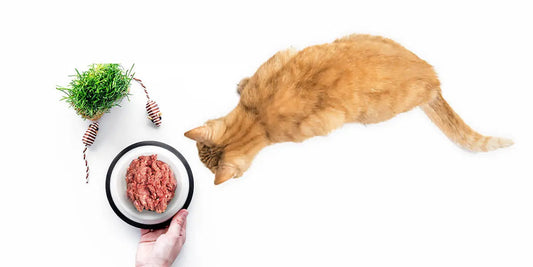
Hyper-Thyroid Disease in Cats
Written by Darwin's
Hyperthyroidism is a condition that occurs when there is an excess of thyroid hormones in the blood, causing the body to burn more calories than your cat can consume in their daily meals. See why a diet that is high in protein and low in carbs is the best way to reduce the symptoms of hyperthyroidism in cats.
What is Hyperthyroidism in Cats?
Hyperthyroidism is a condition that occurs when there is an excess of thyroid hormones in the blood, causing your cat’s body to burn more calories than they can consume in their daily meals. When they are in this state, the body actually “eats” its own muscle tissue in order to survive and meet the increased protein requirements.
The thyroid glands regulate key organs in the body (kidney, liver, brain, skin, digestive system, etc.), so it’s understandable that cats with this disease often also develop diabetes and as many as 30% of cats with hyperthyroidism experience chronic kidney disease as well.
My cat is much happier and alert eating raw food, and the food seems to significantly help with her hyperthyroidism. – Abigail G., Washington
Symptoms of Hyperthyroidism in Cats
Symptoms and clinical signs include:
- Weight loss
- Increased appetite
- Hyperactivity
- An unkempt coat and excessive shedding
- Excessive thirst
- Increased urination
- Panting
- Diarrhea
- Irritability when handling.
A simple blood test can determine if your cat has hyperthyroidism, so we encourage you to consult a vet if you notice any of the above.
Treatment of Hyperthyroidism for Cats
The most common treatment is anti-thyroid drugs. Surgery to remove the thyroid gland or tumors on the thyroid gland and radiation are also treatment options if your cat meets certain criteria.
How Diet Can Prevent and Treat Hyperthyroidism
Veterinary experts in endocrine (hormonal) medicine agree that a diet high in protein and low in carbohydrates, like an all meat raw food diet, is the best way to prevent hyperthyroidism in cats, and help in conjunction with treatment.
“To me, it makes a great deal of sense to feed hyperthyroid cats a diet with a composition close to what they would be getting in the wild,” says Dr. Mark E. Peterson, DVM.
This is especially helpful for cats also suffering from diabetes, where carbohydrate intake should be limited to control insulin resistance.
Of course, no medication or veterinary treatment should be stopped when starting your cat on a raw diet, and the information here is not meant to replace the advice of your vet. But if your cat is doing well with treatment, or you’re an owner looking to prevent chronic diseases like hyperthyroidism, a fresh raw diet that is high in protein, moderate in fat, and low in carbs might be your best bet, according to several recent scientific studies.
Citation
Ross SJ, Osborne CA, Kirk CA, et al. “Clinical evaluation of dietary modification for treatment of spontaneous chronic kidney disease in cats.” Journal of the Veterinary Medical Association, 2006.
Last Updated on


